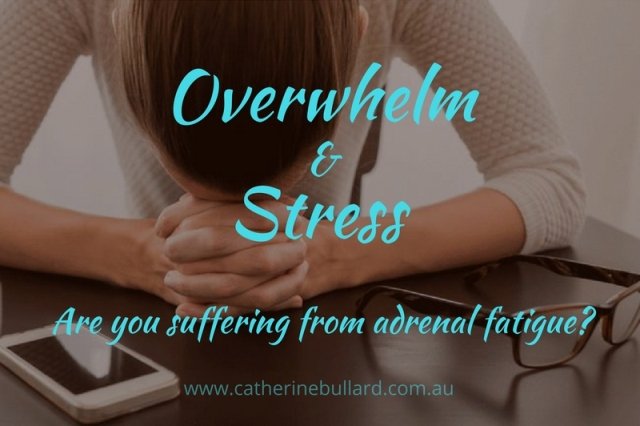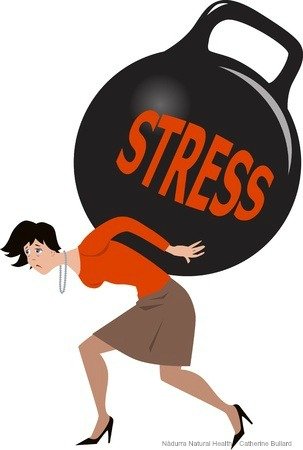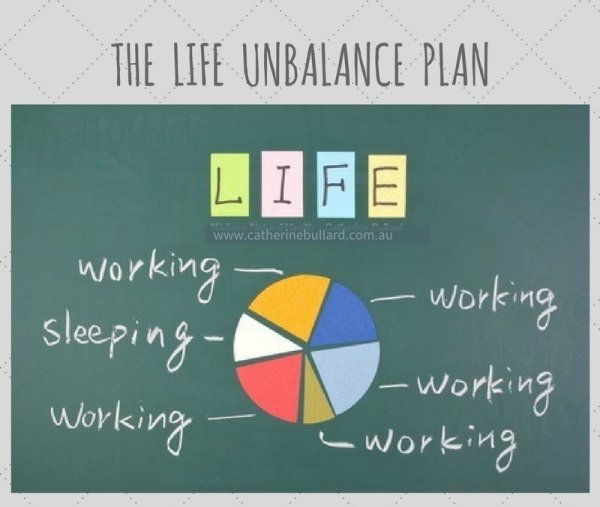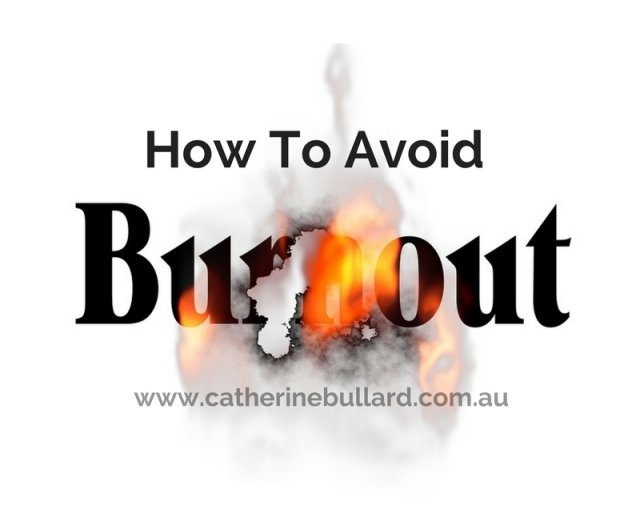While everyone knows about adrenaline and the ‘fight or flight’ response, you may not know much about the other stress hormone cortisol, or about how it contributes to adrenal fatigue. Both stress hormones are necessary at times. But when stress is ongoing cortisol production is dramatically affected and this leads to adrenal fatigue and serious chronic illness.

Both adrenaline and cortisol are produced in the adrenal glands but each performs a very different role.
The hormone adrenalin is released when the body is in danger. It promotes quick reaction, throwing you into the best response to get you out of the dangerous situation. It is meant to be released, used quickly and then switched off.
Cortisol is another hormone that also plays a part in the stress response. It is essential for maintaining homeostasis in your body and regulates many body changes related to stress. It is released in high levels during periods of stress alongside adrenaline. As with adrenaline it’s vital the cortisol response shuts off once danger passes so levels can return to normal.
It is only when stress is ongoing and cortisol continues to be released into the body for prolonged periods that it becomes problematic. However, under constant stress cortisol release never gets turned off and this has a negative effect on many body functions.
EVERYDAY STRESS
Unfortunately, our relentlessly stressful modern lifestyle produces the perfect platform for the Stress Scenario.
Stress itself can be very addictive. In fact it’s quite common for people to even be proud that they experience and can survive their stress. So they juggle a high-power job, family and relationship on caffeine, nicotine and very little sleep. Often we actually applaud people who are able to do it all, as they pull off the seemingly impossible.
But stress burns you out and comes at a cost. And that cost is chronic illness – diabetes, cancer, autoimmune diseases, Fibromyalgia, Chronic Fatigue Syndrome or a host of others
When someone lives with constant stress the stress hormones never get switched off and are continually released into the bloodstream. This is when further symptoms develop until eventually the Adrenal glands themselves are affected.
Your adrenal glands simply can’t keep up with this amount of stress. They become overworked and can no longer match hormone production with demand. The production of cortisol plummets and that’s when Adrenal Fatigue kicks in. The Adrenal glands can no longer produce sufficient cortisol to release that extra boost when an emergency situation arises.
WHAT IS ADRENAL FATIGUE?

Adrenal Fatigue is the umbrella term for the group of symptoms caused by this inability to match cortisol release to demand.
The primary symptom of Adrenal Fatigue is fatigue that’s not improved by sleep. Those who suffer with this syndrome wake feeling exhausted. They drag their feet with tiredness all day only to get a second wind and wake up right when they should be going to sleep at night.
Read more about Adrenal Fatigue at “Are You Suffering From 21st Century Syndrome?”
YOU DON”T NEED TO BE ANXIOUS TO BE STRESSED
It’s really important to understand that stress does not just refer to being in a state of anxiety.
Living with a feeling of overwhelm, insufficient or poor quality sleep, a poor diet, worrying (about anything), unhappiness or living with pain, are all situations that create a state of stress within the cells of your body, without you ever feeling anxious at all.
Any stressful experience can create adrenal fatigue and these may include:
- the death of a loved one or a divorce
- undergoing surgery
- financial hardship
- job stress
- bullying
- even negative thinking
- poor diet
- lack of exercise
- pollution and environmental toxins.
Many, many people spend their entire life in these states and so they live with permanently raised levels of cortisol in their body.
THE EFFECTS OF CORTISOL IMBALANCE
There are two types of cortisol imbalance. The first occurs when circulating cortisol levels are too high and happens during prolonged stress. The second occurs later, once the Adrenal glands are no longer able to produce enough cortisol and circulating levels have dropped significantly. This is when Adrenal Fatigue occurs.
The negative effects of higher levels of circulating cortisol:
- Suppressed or weakened immune system
- Raised blood pressure
- Increased blood sugar levels
- Impaired cognitive performance
- Disrupted sleep
- Hardening of the arteries
- Increased fat storage, especially around the abdomen which is associated with an increased risk of heart attacks, strokes, higher LDL and lower
- HDL cholesterol levels,
- Lower growth hormone and testerone production
- Hyperglycaemia (high blood sugars) and other blood sugar imbalances
- Lowered thyroid function
- Decreased bone density and osteoporosis
- Muscle loss
- Inhibited protein synthesis
- Loss of collagen in the skin and inhibition of the formation of more
- Depression
Long periods of raised cortisol levels can also damage the brain and memory, reducing the ability to learn.
The negative effects of lower levels of circulating cortisol:
- Low energy
- Brain fog, fuzzy-headednes
- Mild depression
- Blood sugar imbalances, hypoglycaemia (low blood sugars)
- Fatigue, especially in the morning
- Disrupted sleep
- Low blood pressure
- Lowered immune function
- Inflammation
- Cravings for salty or sweet foods
- Difficulty recovering from illness or stress
- A feeling of being run down or unable to cope
- Feeling awake and alert in the evening in spite of being tired all day
- Body aches
- Moodiness
- Decreased libido
- Increased allergies
- Hair loss

SUPPLEMENTS FOR ADRENAL FATIGUE
Natural Health modalities can help speed up your journey back from Adrenal Fatigue, which can otherwise be slow. But if you are also deficient in simple vitamins and minerals you lack the basic building blocks your body requires to build your health. Consulting a Natural Health practitioner will provide you with the advice and treatment you need, and replacing some of the deficiencies will also help.
These are just some of the vitamins and minerals that Adrenal Fatigue sufferers tend to lack, although not every person will need all these. Your Natural Health Practitioner can guide you best.
B Vitamins
B5 contributes to cellular respiration and the breakdown of nutrients. Start with 100mg a day.
B6 helps create adrenal hormones. Take 50 mg a day to begin.
B12 helps with energy production, cell repair and red blood cell maintenance. Start with 100mcg a day.
Vitamin C
Vitamin C is a powerful antioxidant directly involved with the production of cortisol. It also offers many other benefits to your immune system and more. Start with 100mg of buffered Vitamin C a day and increase this gradually.
Probiotics
Adrenal Fatigue frequently affects digestion. Here probiotics play an important role as they contribute to better uptake of nutrients which assist the body on its healing journey.
Magnesium
Most of the population is thought to be deficient in magnesium so supplementing is a great benefit. As well as causing depression and sleep problems magnesium deficiency can also lead to muscle cramps and stiffness. Begin with 400mg a day.
There are a number of other supplements that are useful to treat Adrenal Fatigue such as CoQ10, Acetyl-L-Carnitine, Spirulina and the herb Tulsi (Holy Basil).
NATURAL THERAPY FOR ADRENAL FATIGUE
In my clinic Homeopathic remedies and Herbal Essences help with recovery from Adrenal Fatigue. Both these forms of Natural Medicine are effective on their own without the use of additional supplements. Best sustained results occur when Homeopathic medicines are individually prescribed according to Homeopathic prescribing guidelines, by a qualified practitioner.
LIFESTYLE CHANGE
Lifestyle changes that help reduce the impact of Adrenal Fatigue are helpful. After strenuous exercise you often get an initial burst of energy but then crash with adrenal fatigue. Walking, yoga, meditation, tai chai, and qi gong are all gentle forms of exercise that won’t result in you crashing.
Controlled breathing exercises and techniques are excellent and can be done through the day wherever you happen to be.
Improve your sleep by modifying your sleep preparation rituals because this can help reduce insomnia and the impact caused by adrenal fatigue.
EATING FOR ADRENAL FATIGUE
- Reduce sugars, caffeine, and alcohol at the very least to support your recovery.
- If you must drink coffee or cola do it in the morning and then steer clear of it through the day as it interferes with sleep and adrenal recovery.
- Watch for hidden sugars and replace sugar with stevia where you can
- Alcohol contains sugar and creates a boost and crash scenario, interfering with the sleep cycle and causing insomnia later in the night.
- Hydrogenated oils lead to adrenal inflammation so use good fats like coconut oil instead.
- Avoid processed microwaved foods which contain many difficult to digest preservatives and fillers.
Have you experienced Adrenal Fatigue? Leave a comment below.
For more information and advice about how best to treat your symptoms contact your Natural Medicine Practitioner.

Disclaimer
All information and opinions presented here are for information purposes only and are not intended as a substitute for professional advice offered during a consultation. Please consult with your health care provider before following any of the treatment suggested on this site, particularly if you have an ongoing health issue.


